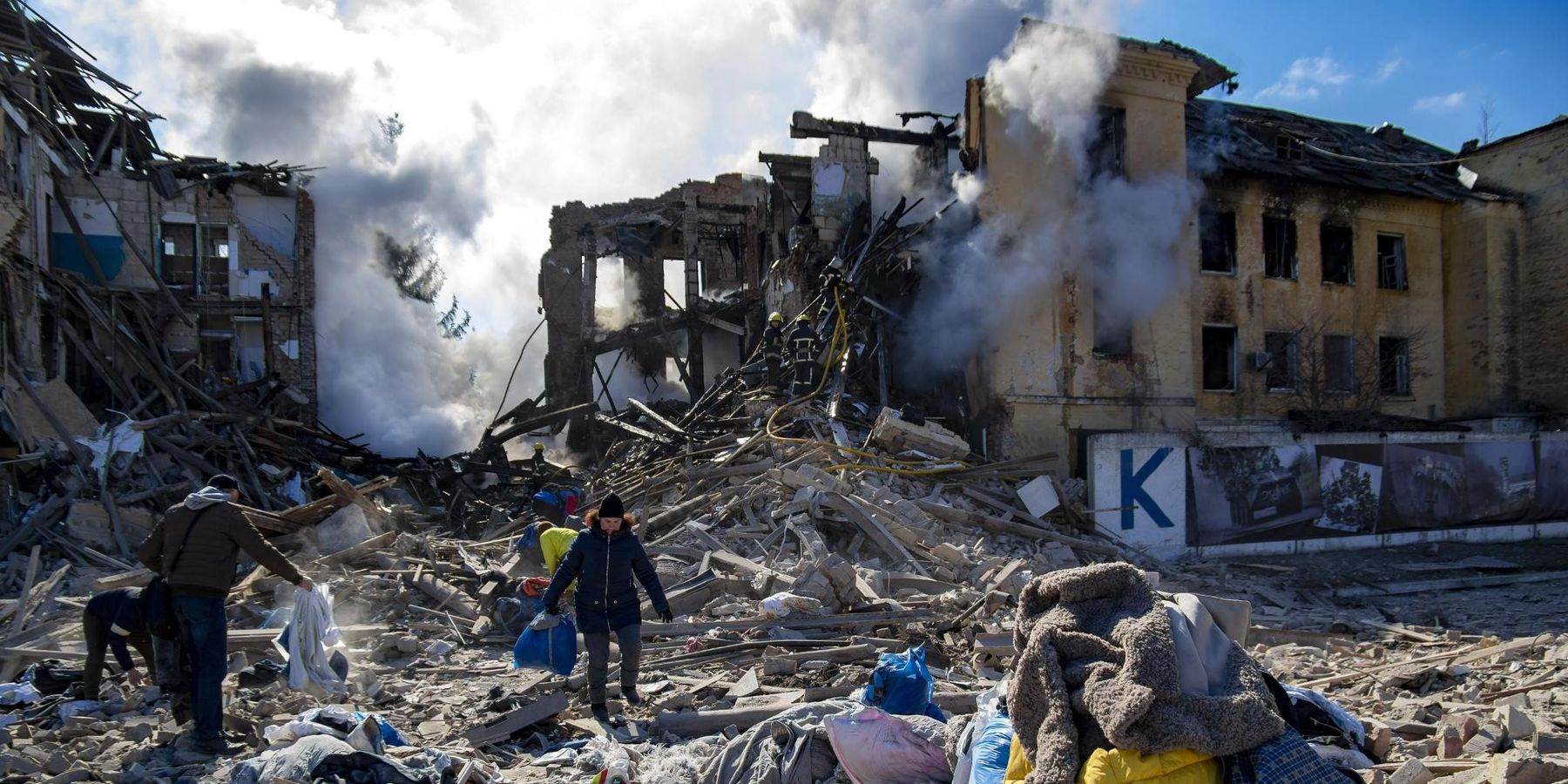A new report finds dangerously high levels of uranium and lead contamination in Fallujah, Iraq, and other places that experience massive military bombardments in wartime, resulting in birth defects and long-term health risks among the people who live there
The report — from the Costs of War project at Brown University’s Watson Institute for International and Public Affairs — presages the dangers of prolonged conflict in places like Ukraine and Gaza, both of which have experienced sustained bombing campaigns for 3 years and 18 months, respectively. Indeed, precautions can be taken to reduce dangerous exposure to those who return to their homes after conflict ends, but the authors also point out that “the most effective way to limit heavy metal toxicity from war is by not bombing cities” at all.
Researchers found that 29% of Iraqis living in Fallujah have uranium in their bones, and 100% have lead contamination. Uranium is toxic to humans, and lead can be at high levels. The levels found at Fallujah were 600% higher than the national average in the United States.
These findings add to years of research done on the after-effects of America’s campaigns in Fallujah. In central Iraq, Fallujah was the scene of two destructive campaigns during the Iraq War. Several insurgent groups were operating in Fallujah in 2003, and in 2004, four American contractors were killed, with their bodies put on display. The United States launched the First Battle of Fallujah shortly after in an attempt to capture the perpetrators.
The first battle lasted only around a month, and the Second Battle of Fallujah broke out in November as the U.S. wanted to retake the city from insurgents. By November, 2,000 American and 600 Iraqi troops were participating in the assault, supported by air and artillery strikes. Most of the civilians were warned and subsequently evacuated, but tens of thousands remained during the fighting, which lasted until late December.
By the end of 2004, 60% of the city’s buildings were destroyed, 50-70% of the population had fled, and an estimated 800 civilians were killed. The after-effects were astounding, with infant mortality rates spiking to 13% from 2009-2010 (as opposed to around 2% in Egypt, for example). Birth defects were so widespread that some doctors warned parents to hold off on having children.
Heavy metal contaminants are often present in old war zones, either from the weapons that were used (including depleted uranium found in munitions) or burn pits used to destroy weapons and equipment, as the United States did in Iraq and Afghanistan.
According to the Costs of War study, exposure to these metals can especially harm individuals as they age and during pregnancy. It can lead to cancers, issues with neurodevelopment and cardiovascular health, and birthing complications.
The Department of Defense estimated that 3.5 million American soldiers may have returned from active duty only to suffer from health problems related to toxic metal exposure. Despite this, the military has approved soldiers to continue using burn pits under certain conditions.
The Costs of War report also highlighted how those who return to war-torn areas are often exposed to these metals as they clean up, often without proper protective equipment. Additionally, water and food sources can be contaminated or even destroyed following military campaigns.
The report’s authors recommend that as civilians return to their homes in Lebanon, Syria, Gaza, or Ukraine, they wear proper face coverings to prevent inhaling toxic debris, bury rather than burn trash, and take vitamin supplements to combat some of the adverse effects of exposure to heavy metals.
The report concludes that “the detonation and widespread use of heavy metals should be avoided at all costs” as “damage to the quality of air, soil, and water is long-lasting.” It adds that nations can disinvest from weapons sales and invest in more “effective and sophisticated forms of international relations” as a way to reduce civilian heavy metal exposure.
- The ghosts of the Iraq War still haunt me, and our foreign policy ›
- ‘Mission Accomplished’ was a massive fail — but it was just the beginning ›
- The War on Terror led to over 4.5 million deaths: report ›
















